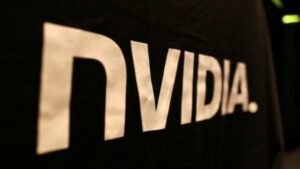India is exploring a potential partnership with chip-making giant NVIDIA to procure its graphics processing units (GPUs) and neural processing units (NPUs) and offer them at subsidized rates to local startups, researchers, academic institutions, and other users in a bid to boost the AI infrastructure in India.

This initiative will cost India about ₹10,000 crore and is still in its early stages. The final decision is expected to be taken once the general elections of 2024 wrap up, according to The Economic Times.
NVIDIA controls a significant portion of the GPU market and has emerged as the natural choice for India’s AI computing infrastructure needs. Globally, countries and businesses investing in AI computing infrastructure are lining up to acquire NVIDIA GPUs, mainly the H100 chips.
India is exploring two models to acquire and provide AI compute-capable NPUs and GPUs.
Namely a “rent-and-sublet” model and a marketplace model.
The government will subsidize GPUs for startups, researchers, and others in the rent-and-sublet model.
The government would encourage companies to negotiate rental or subletting deals directly with Nvidia in the marketplace model. Incentives would be provided based on the incremental productivity achieved using the GPU, similar to the model followed in India’s PLI scheme.
The scarcity and high cost of GPUs have made acquiring them a significant challenge for companies, especially startups. NVIDIA’s H100 GPUs typically go for about $50,000 a piece, whereas its more recent Blackwell cards go for about $40,000.
Even for the most basic AI data center, which can only run existing AI models, we are looking at about 100 to 300 GPUs at the very least. For any meaningful computing capability that could be used to create, develop, and train large language models, we are looking at 5000–10,000 GPUs.
OpenAI, for example, apparently used 720,000 H100 GPUs worth $36 billion to develop and train Sora, its AI video generator. Similarly, Meta is working with about 350,000 H100 units worth $17.5 billion. Meta is planning to buy more of these GPUs.
For perspective, India’s supercomputer, AIRAWAT, located at the Centre for Development of Advanced Computing (C-DAC) in Pune, ranks as the 75th fastest supercomputer globally and is equipped with 640 GPUs. However, compared to the world’s fastest supercomputers, which boast over 30,000 GPUs, India seeks to bridge a significant gap to remain competitive in AI research and development.
In March, the Union Cabinet approved Rs 10,372 crore for India’s AI Mission to deploy 10,000 GPUs through public-private partnerships. Under the rent-and-sublet model, the government plans to provide GPUs to qualifying startups, researchers, and others on a concession basis.
Alternatively, a marketplace model is being considered, where performance can be objectively measured and incentives distributed accordingly, similar to a production-linked incentive (PLI) scheme.
Globally, companies and government agencies acquire GPUs. However, allocating such scarce resources is unlikely to prioritize any country solely based on its federal structure. Therefore, India is exploring various solutions and engaging with stakeholders to optimize its approach.
The demand for GPUs has significantly increased Nvidia’s market value to $2.16 trillion, making it the third most valuable company globally, trailing only Microsoft and Apple. Indian companies like the Reliance Group, Tata Group, and Yotta Infrastructure have already entered deals with Nvidia to procure GPUs for domestic use.
AI startups and prominent CEOs in India have advocated for government investment in computing capacity to enhance the nation’s competitiveness in the global AI landscape.
India’s AI mission aims to foster innovation and safeguard the sovereignty of Indian data. Due to the limited availability of GPUs domestically, many companies have resorted to accessing cloud resources abroad.









